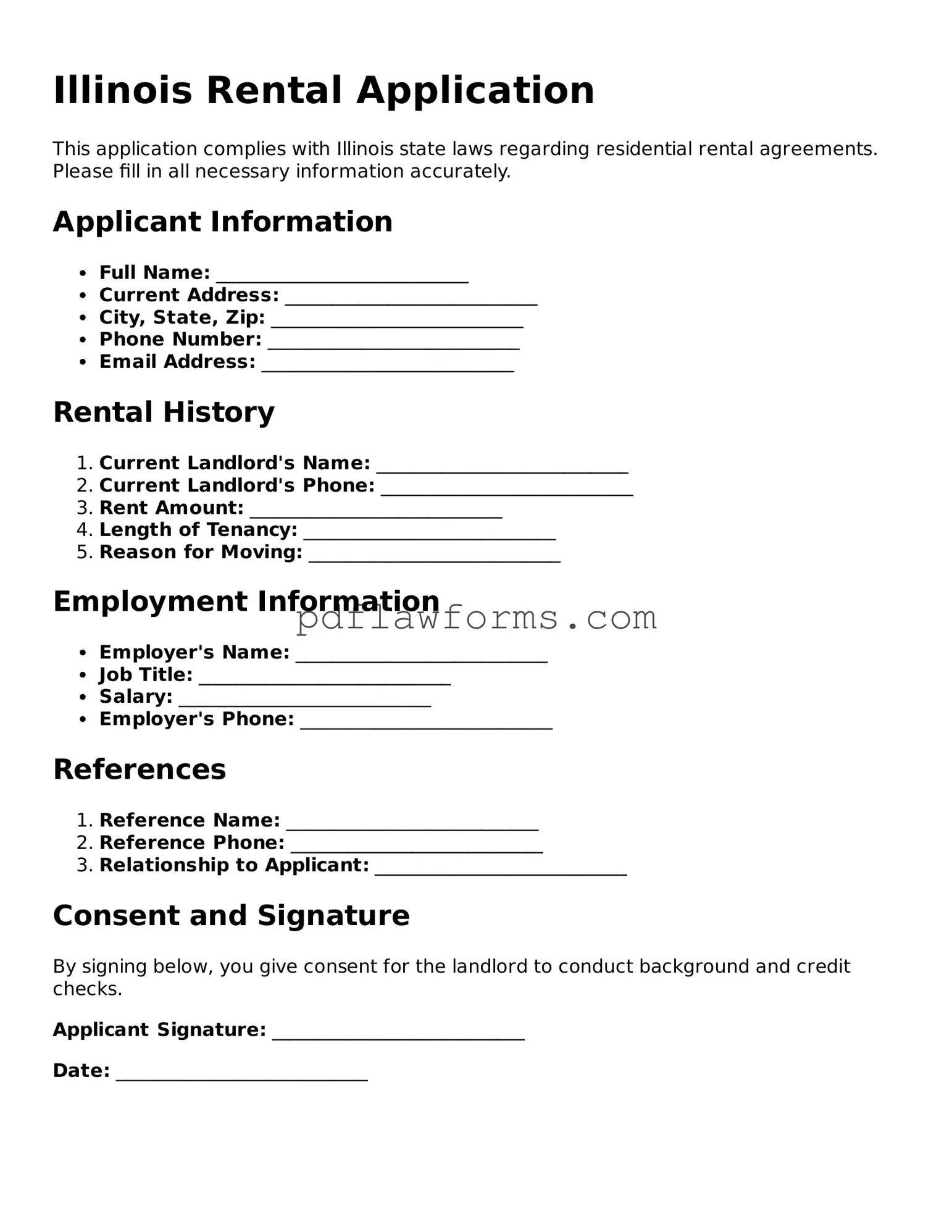Rental Application Form for the State of Illinois
The Illinois Rental Application form is a document used by landlords to collect essential information from prospective tenants. This form helps ensure a thorough screening process, allowing property owners to make informed decisions about potential renters. If you are looking to rent a property in Illinois, consider filling out the application form by clicking the button below.
Make My Document Online

Rental Application Form for the State of Illinois
Make My Document Online
You’re halfway through — finish the form
Edit and complete Rental Application online, then download your file.
Make My Document Online
or
⇩ Rental Application PDF
